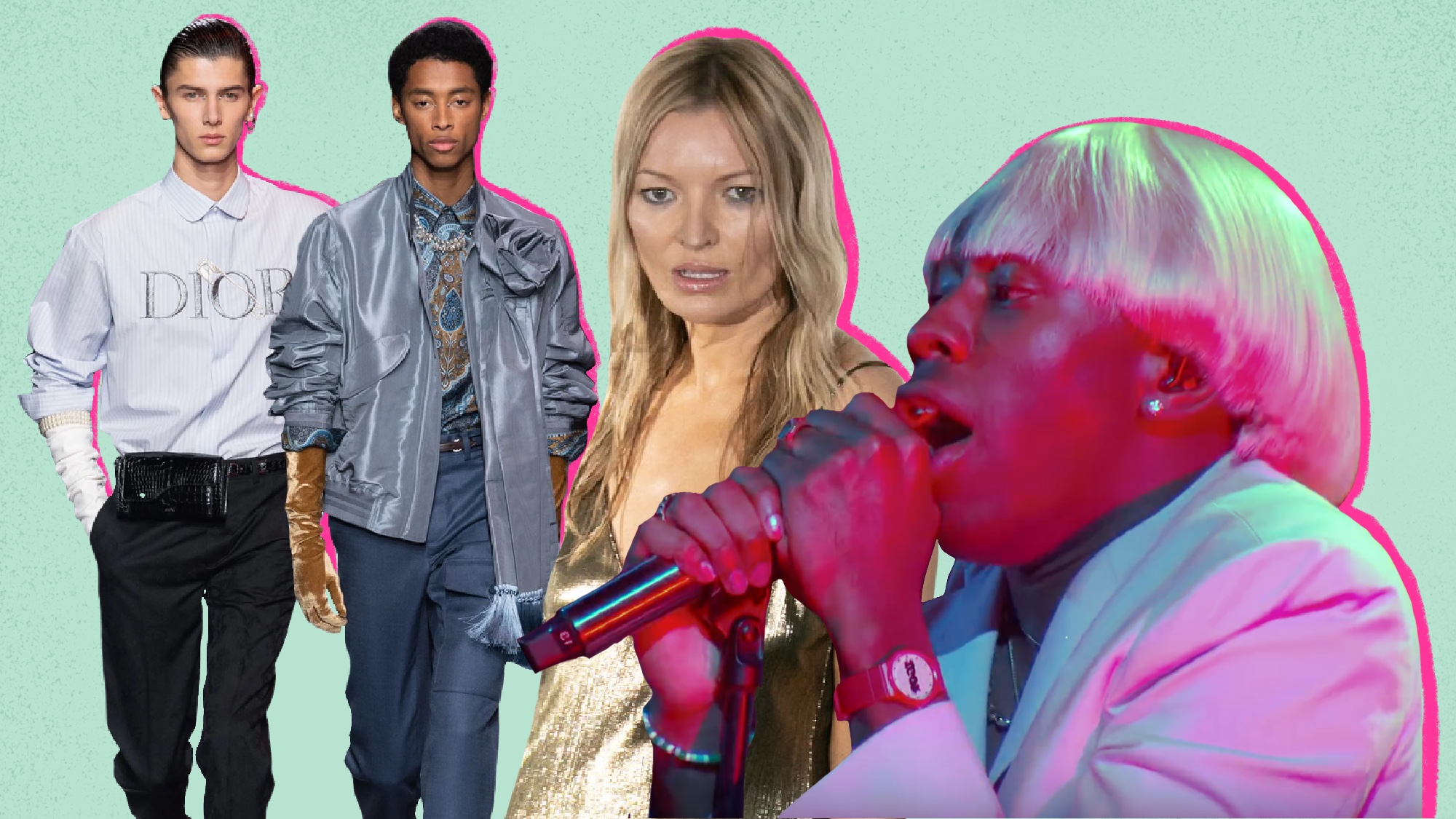In our new monthly column, Trendsplaining, cultural historian Tim Fraanje attempts to break down the tangled web of fleeting fashion trends and weave it back together.
In recent years, our most beloved fashion items have offered us a very transparent way to communicate our identity and our true selves — from the see-through bag (“Look, these are my Prozac and my snotty tissues”) to slogan-shirts (“Nice to meet you, this is how I vote”).
This sartorial self-exposure mirrored a wider cultural shift towards unvarnished intimacy. In place of unapproachable aloofness, celebrities got as in-your-face as possible. In vlogs, insta stories and sex tapes, their most intimate, banal moments were shared with the world. You’ll be pleased to hear, then, that the arrival of opera gloves as fashion’s latest accessory du jour might just indicate a change. First adopted by the likes of Beyoncé and Cardi B, after the most recent fashion week it seems that, in 2020, everybody will be wearing long satin gloves… or at least considering it. Naturally, Dior and Dries van Noten showed some of the most beautiful specimens.
The newfound popularity of opera gloves could signal a paradigm shift. Yes, this sounds pretentious, but pretension is exactly what this is all about. Instead of amplifying the authentic identity of the wearer, opera gloves provide us with some theatrical glamour to hide behind. In The Transparency Society (2015) , German-Korean philosopher Byung-Chul Han talks about the lack of a ‘scenic distance’ in today’s social media-driven world. He takes us back to the 18th century, when people lived in a theatrum mundi. There was a separated public sphere where people acted out a persona, built out of masks, wigs and rituals, in order not to show their naked, unapologetic self. “The world today is no theatre where actions and feelings are represented and interpreted, but a market on which intimacies are exhibited, sold and consumed,” he comments.
Of course, there is value in vulnerability. But stripping down to the bare essentials leaves no room for expressing your personality in a more stylised, artistic way, or for changing your identity. You are data, therefore you are. “The society of transparency is a society without poets, without seduction or metamorphosis” writes Han.
Opera gloves are not the only sign of the world turning into a theatre again. Alessandro Michele has, since his instalment at Gucci, been one of the torch bearers for a theatrical lifestyle with velvet gowns, masks and obscure occultism. The classic theatrical motive of the doppelgänger, which Michele explored with his brother-from-another-mother Jared Leto, is now having a major moment in fashion and culture. Former minimalist Rick Owens had glamorous Bowie-looks worn by a model resembling Iggy Pop (who, by the way, was nailing silver opera gloves as early as the seventies) on his AW20 catwalk.
Vetements used to fetishise bleak realism (“I’m so authentic I look like a DHL delivery person”), but their first post-Demna show featured Kate Moss and Snoop Dogg lookalikes. The final Jean Paul Gaultier show proved that having the real deal is still a hit recipe, especially if that means Amanda Lear carried by two hunks and a slightly awkward Boy George, but fake celebrities are undoubtedly an interesting move. Doppelgängers complicate the notion of identity: they are very explicitly not a true, authentic self.
That the move away from unapologetic realism has the capacity to challenge current conventions, became painfully clear when Tyler, the Creator won a Grammy for his album Igor. The titular Igor is Tyler’s alter ego, an evil doppelgänger to contrast with the more lyrical (and semi-autobiographical) protagonist in a heartbreaking story about a love triangle. It’s understandable that Tyler had mixed feelings about winning in the ‘urban’ category — a classification that suggests gritty, social realist rap but in practice serves as a catch-all pigeonhole for any ‘black’ music (“a politically correct way of saying the n-word,” as he put it). The art was reduced to (a very particular part of) the identity of the artist, while Igor happens to be a very intricate play with identities full of layered characters; rooted in pop music as well as theatrical and literary traditions.
Tyler emphasised his point in a great Grammys performance featuring a whole host of doppelgängers. Instead of exposing himself, he was expressing an artistic vision. Your trendsplainer sincerely hopes that the omnipresence of opera gloves and doppelgängers are signs of a progressive return to a theatrum mundi… one in which you can be your true self if you want, but also whoever the fuck you want to be.

